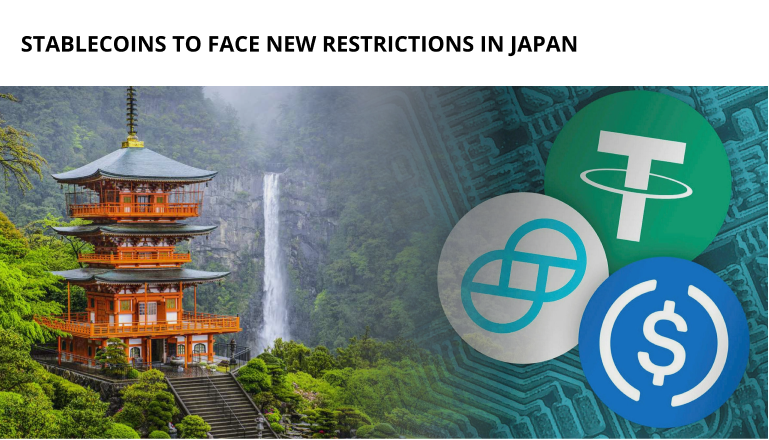Key Takeaways:
- The Financial Services Agency (FSA) of Japan has announced that stablecoins to face new restrictions in Japan.
- FSA has declared the updated restrictions on stablecoin issuance in the country.
- Only banks and wire transfer services will issue stablecoins in the future.

The Financial Services Agency (FSA) of Japan has announced that it will follow in the footsteps of the US regulator in terms of strengthening regulatory oversight for stablecoins. According to a local publication, the FSA has declared the updated restrictions on stablecoin issuance in the country, which means that only banks and wire transfer services will issue stablecoins from now on.
The Japanese authorities referred to the Tether debacle in the United States, noting that by imposing restrictions on the issuance of Stablecoins, the government hopes to ensure the economy’s stability by preventing mass liquidation if the currency’s issuer goes bankrupt. Furthermore, the FSA has stated that it will introduce Stablecoin legislation next year, confirming that it took regulatory framework inspiration from the United States. In addition, Japan plans to launch a yen-based cryptocurrency by 2022.
The President’s Working Group on Financial Markets, along with other regulators, including the Office of the Comptroller of the Currency (OCC), issued a report on stablecoins in November, which included recommendations to treat stablecoin issuers as banks.
According to the report, the legislation will also include steps to prevent money laundering through stablecoins by giving the agency more oversight over intermediaries such as wallet providers and additional know-your-customer (KYC) measures.
Moreover, in January, a consortium of more than 70 major Japanese corporations, including Mitsubishi, is expected to begin testing the digital yen, a central bank digital currency (CBDC) that they claim will function similarly to bank deposits.
Along with the restrictions on the issuance of Stablecoins, the FSA intends to impose additional security protocols to make the decentralized industry less risky and protect consumers. According to reports, the authorities will issue updated and stringent anti-money laundering guidelines.
In addition, regulatory scrutiny of intermediaries such as wallet providers involved in stablecoin transactions will be significantly increased. These wallet providers will be required to comply with Japanese law regarding preventing criminal proceeds transfers by verifying user identities and reporting suspicious transactions.
Japanese regulators are following up on their initiative to enact crypto laws. For example, the FSA established a new division earlier this year to oversee a broader market of “decentralized finance.” As a result, all blockchain-based financial operations that do not use central intermediaries will be regulated.
Furthermore, in light of the crypto industry’s rapid development, Japan’s Finance Ministry has joined the regulation project.
“Japan can no longer leave things unattended with global developments over digital currencies moving so rapidly,” Reuters quoted the Ministry’s note.









